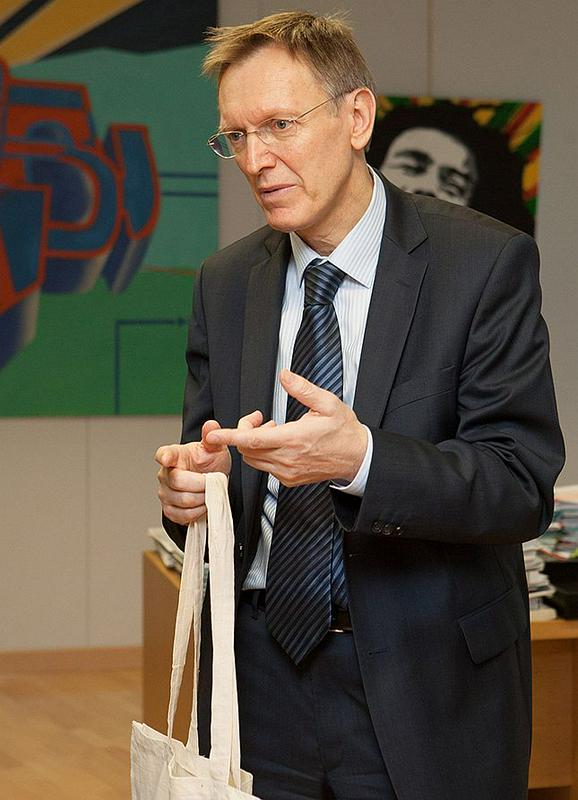

But it's also a day for raising the alarm. Law enforcement agencies have noted a dramatic spike in international wildlife trafficking, threatening many of the instantly recognisable species so many people hold dear.
More than one thousand rhinos were shot last year for their horns. Tens of thousands of elephants are being killed every year for their ivory. Tigers are slaughtered for their skins and bones, bears for their paws and bile, sharks for their fins, and a thriving black market for live birds and reptiles is undermining the legitimate trade in pets.
And the problem is not confined to exotic species. Even within the European Union, birds are illegally killed, and endangered species like eels are smuggled to Asia.
The EU is not immune to this global problem, and it has every reason to take the initiative in finding solutions. The European Union is a major market for wildlife products like tropical timber, reptiles and caviar, and none of these is exempt from illegal trade.
Europe is also a transit route used by wildlife criminals. Every week, customs and police officers seize forbidden items like rhino horns, ivory, pangolin scales, dried seahorses and live chameleons at European ports and airports.
Wildlife trafficking has become a major growth area for transnational organised crime. These networks operate everywhere, including in the EU. Last year, the Czech authorities arrested 16 people in a sophisticated criminal ring that was smuggling rhino horn from South Africa to Vietnam. Wildlife crime is lucrative, with rhino horn selling at EUR 40 000/kilo, for example, and penalties seem rarely applied.
The consequences of this trafficking are devastating, especially for millions of the poorest people in the world who depend on biodiversity and healthy ecosystems for their livelihoods. If poaching levels in Africa remain at their current levels, there is a real risk that some of the most striking creatures on Earth could face extinction. This would be a tragedy in itself, but poaching has other consequences that are also highly detrimental to people: it steals natural resources from local communities that live with these species and often depend on them for their livelihoods, it feeds corruption, and undermines the political stability of already fragile regions like in Central Africa.
The EU's engagement in trade, diplomacy and development cooperation makes us well placed to address the changing face of wildlife trafficking. We already do a lot, but we need to do more. We would welcome views from citizens on where action is needed, so we are asking for views on EU policies in this area in an internet consultation (see http://ec.europa.eu/environment/cites/trafficking_en.htm). This is an area where European civil society can make a huge difference in fighting these devastating crimes.
Let's celebrate World Wildlife Day, and the natural wonders of the world. But let's also step up our efforts to protect them. Stopping wildlife trafficking now is an absolute must if we want future generations to celebrate this day, as they rightly should.
For MMC, Janez Potočnik, European Commissioner for Environment

































































